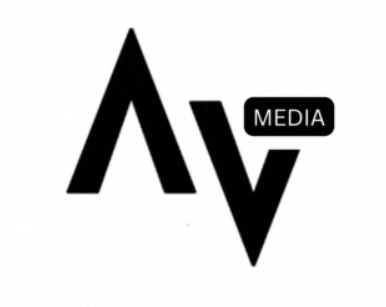The USMLE Step 1 is an important exam for medical students seeking licensure in the US. A successful outcome requires careful planning and a structured study approach. This article offers a comprehensive 4 to 6-month study schedule to aid in effective preparation for the exam. The beginning of the study plan establishes a framework for effective learning, emphasizing the need for a structured schedule and sufficient study time to cover exam material thoroughly. It proposes dedicating 4 to 6 hours per day to studying with shorter breaks to maintain focus. The introduction plays a crucial role in establishing a solid foundation and addressing key factors that contribute to a successful study journey for the USMLE Step 1 exam.
Assess Your Current Knowledge:
Prior to beginning your study schedule, it is important to evaluate your current knowledge by taking a diagnostic test or self-assessment. This will help you prioritize topics and manage your time effectively.
The purpose of this section is to help test-takers understand their strengths and weaknesses in different subject areas tested in the USMLE Step 1. By evaluating their current knowledge, students can identify areas that require more focused study and prioritize their study time accordingly. This self-assessment process plays a crucial role in creating an effective and personalized study plan for the USMLE Step 1 exam.
Set Realistic Goals:
To achieve your desired score, it is recommended to set attainable goals during your study period. You can divide the material into smaller sections and assign specific goals for each week or month, which can help maintain focus and motivation.
The purpose of this section is to emphasize the significance of setting realistic goals that align with an individual’s capabilities and circumstances. It encourages test-takers to avoid overburdening themselves with unrealistic expectations, which can lead to burnout or ineffective studying. By setting attainable goals, students can maintain motivation, track their progress, and make the most efficient use of their study time.
Create a Study Plan:
To become a doctor, it is essential to devise a well-structured study plan for USMLE Step 1 that spans 4-6 months. A recommended approach for studying is to divide the period into three phases: content review, practice questions, and dedicated review. It is suggested to allocate about 1 to 1.5 months for content review, 1 to 1.5 months for practice questions, and 1 month for dedicated review. The timeline can be adjusted based on individual preferences and study pace.
Phase 1: Content Review
In preparation for the USMLE Step 1, it is recommended to prioritize covering foundational concepts and topics. It is suggested to organize study materials, including textbooks, lecture notes, and online resources. To ensure thorough understanding, assign specific topics to each day or week with sufficient time allocated for in-depth learning.
The initial stage of preparing for the USMLE Step 1 exam involves a content review phase that usually spans 4 to 6 months. The main focus during this phase is to go through the material thoroughly in order to attain a good performance on the test. Here are a few suggestions that can assist you in maximizing your time during this crucial phase.
Study Resources:
Preparing for the USMLE Step 1 Exam involves creating a study plan and selecting study resources that suit your learning style. Choosing the right resources from the many available can be challenging, but it’s important for passing the exam.
The following tips can be useful in maximizing your study resources.
- Determining your learning style is beneficial for selecting appropriate study materials. It is important to identify whether visual, hands-on, reading, or listening methods are most effective for you. This knowledge can assist in choosing appropriate resources, like videos for visual learners and podcasts for auditory learners.
- When preparing for the USMLE Step 1 exam, many medical students find review books to be helpful study aids. One popular option is First Aid.
- Question banks such as UWorld and Kaplan offer USMLE-style questions to aid in identifying areas of weakness, tracking progress, and enhancing critical thinking abilities.
- Video lectures can be an effective tool for learning complex topics. Two examples of resources that offer such lectures are Sketchy Medical and Boards and Beyond, which provide video lectures on microbiology, pharmacology, and pathology.
- Utilize a variety of resources, including flashcards, mnemonic devices, blogs, podcasts, and social media groups, to enhance your preparation for the USMLE Step 1 exam.
Study Approach: To succeed in the USMLE Step 1 exam, it is important to have a strong study approach. This involves creating a study plan, dedicating adequate time to studying, selecting appropriate resources, and monitoring your progress. Here are some recommendations for developing an effective study approach.
- Creating a study plan can help you stay on track. Determine how much time you need to prepare and study daily. Schedule breaks and review periods into your plan. Set specific days for subjects that require additional attention.
- Preparing for the USMLE Step 1 exam requires dedication and at least four to six months of studying, depending on individual medical knowledge and study habits. It is recommended to establish consistent study days and take breaks to improve focus and retention.
- To achieve success in USMLE Step 1, it is recommended to select effective study materials that prioritize weak areas and high-yield topics.
- Monitoring your progress during study sessions is crucial. Utilizing practice exams and self-assessments can aid in identifying strengths and weaknesses. Analyzing incorrect responses is also beneficial in pinpointing areas that need further attention.
Study Time: It is recommended to dedicate 6 to 8 hours of concentrated study time daily, taking short breaks in between to ensure productivity.
Phase 2: Practice Questions
After mastering the necessary material, it is beneficial to shift attention towards practicing questions, as it allows for the application of knowledge, identification of areas for improvement, and enhancement of test-taking abilities.
Study Resources:
- Using question banks such as UWorld and NBME self-assessments can benefit practice.
- Establish a daily goal for the number of questions to be completed. Take the time to thoroughly review each question, gaining an understanding of both the correct and incorrect answer options.
- It is recommended to practice answering questions for 4 to 6 hours each day, gradually increasing volume as you improve.
Phase 3: Dedicated Review
The last step consists of solidifying your understanding, addressing any remaining deficiencies, and refining your approach to the exam.
Study Resources:
- It is recommended to review high-yield resources such as First Aid for the USMLE Step 1 and Pathoma.
- To effectively review difficult topics, it’s helpful to concentrate on specific areas and utilize techniques such as active recall to enhance memory retention.
- It is recommended to set aside 6 to 8 hours daily for review, including time for practicing exams and completing full-length assessments.
Maintain a Balanced Lifestyle:
Maintaining a balanced lifestyle is crucial during USMLE Step 1 preparation. This includes taking breaks, exercising regularly, getting enough sleep, and consuming healthy meals to optimize study efficiency and performance.
It is recommended to seek support and maintain motivation.
Preparing for the USMLE Step 1 can be tough. Find help from peers, mentors, or online tutors. Join study groups, attend review courses, and discuss to clear doubts and stay motivated. Remember to celebrate small wins to stay positive.
Conclusion:
To prepare for the USMLE Step 1, make a study schedule and stick to it. A 4 to 6 months schedule can help you cover the content, practice questions, and review strategically. Personalize the schedule based on your strengths and weaknesses. Stay focused, stay motivated, and trust in your preparation. Good luck on your journey!





















